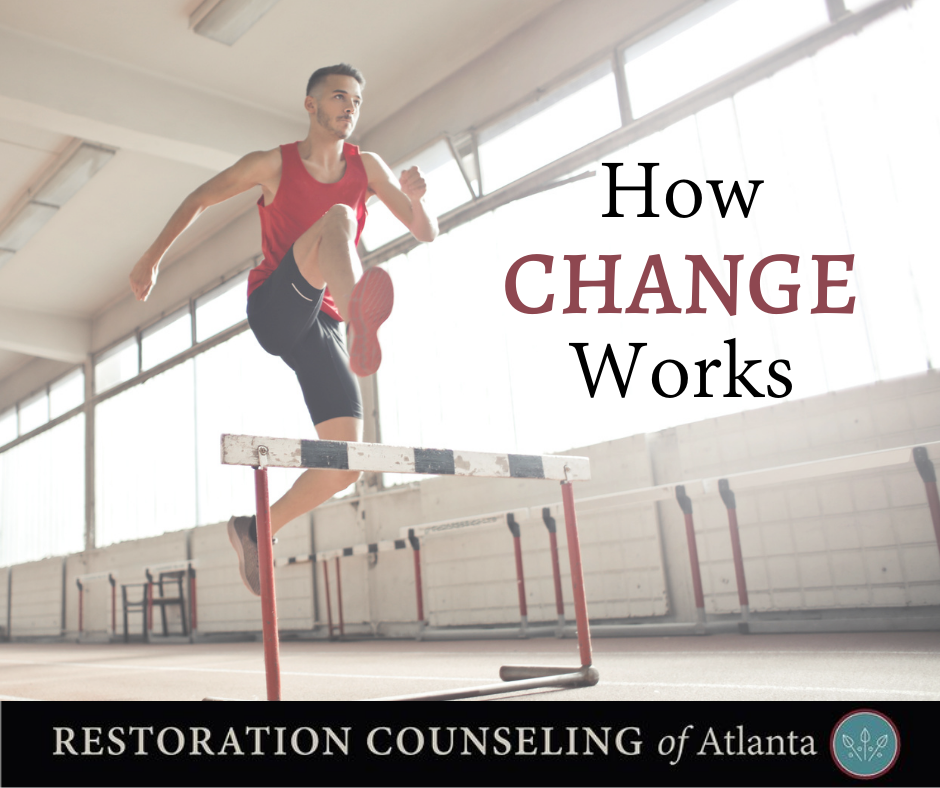Have you ever desired to change but inevitably ended up stuck? Have you wondered why you start the process of change but struggle to maintain it? This article will explore the stages of change and how they work.
In each area of our life, we will find ourselves in one of these stages, and this article can help you move to the next stage.
According to James Prochaska and Carlo DiClemente’s 1983 model, the stages of change are pre-contemplation, contemplation, preparation, action, relapse, and maintenance.
Envision you or someone you know desiring to get into shape. There are a series of phases that they go through before they get to the fitness level they want. For instance, someone interested in increasing their muscles does not start out lifting 400 pounds on their first day. Likewise, individuals longing to improve their cardiovascular health should not run 10 miles in their initial session. Understanding how change works can help set realistic goals and remove barriers that inhibit movement from one phase to another.
Pre-contemplation
Pre-contemplation is the first phase that can be considered ground zero. At this stage, a person might not be aware that they have behavior or thought patterns that need to be challenged or changed. Others might be mindful of these unhealthy patterns but uninterested in changing them.
Returning to the fitness illustration, imagine if a physician suggests that patients alter their diet or embrace a workout regiment. This action is an external motivator that will remain external until the individual in need of change internalizes this goal and finds intrinsic (internal) motivation. This is where an individual may begin to contemplate change.
Contemplation
At this stage, individuals might find that they desire change and might even demonstrate an awareness of problematic behavior. However, there is no immediate commitment to action, or action is postponed to a future point in time, i.e., “one day I will address this or schedule this.” This person might join a gym “someday.”
Preparation
This is the time when intentionality becomes visible. The individual gathers research to determine what they need to start the process for change to happen. They set a date date is set, make a call, or ask for help. Change rarely occurs without planning. An individual at this stage will research gym costs, classes, and memberships, or determine if they have enough motivation to work out at home.
In Mark 10: 51-52, Jesus approached Bartimaeus, a blind man who was begging and calling out to him. Jesus asked him, “What do you want me to do for you?” One might think that it is obvious. This man desired his sight. Yet, Jesus gave him the opportunity to name what he wanted. Bartimaeus prepared to have his need met, then took action by following the direction of Jesus.
Action
The steps for modification of heart, thoughts, or behavior begins now. Intentionality gives way to the production of fruit.
You show up to the gym and begin to work out gradually.
Maintenance
The new behavior replaces the thoughts or behavior of the individual. This is the harvest of the fruit of action. Short-term change is learned, and a system begins to be created in hope of sustaining the change.
At the gym, you become better able to perform repetition or endure longer stints of cardio engagement. One of the by-products of getting stronger is getting sore. While soreness is unlikely to be the aim of a fitness routine, the human muscle must be stretched, torn, and repaired to become stronger. Once this process consistently occurs, our bodies can change, or we can arrive at a greater amount of stamina.
Relapse
Just as soreness is an undesired factor in fitness, relapse is unwanted in the change process. I often share that our first thought of a relapse is a person succumbing to their addictive behavior. The definition of relapse for this article is returning to previous patterns, thoughts, or behavior. Inevitably, many people on a journey to change will find themselves going backward. Take heart! All is not lost! This does not mean that you have not learned or that your efforts are in vain. Rather, you have the opportunity to learn from the relapses and return to a previous stage to complete the upward journey.
With the gym illustration, we might return to unhealthy eating or avoid working out due to the holiday season, a breakup, or possibly an injury. It is necessary to take small steps to return to a sustainable, consistent routine slowly. Adding accountability by bringing along a friend or family member can also help you return to maintenance.
Sustaining Change
Once you continue through these stages, you will have longer periods with less frequent relapses, and you will build a greater capacity for change to occur in other areas of your life. It is important to review the change process over time and celebrate when change becomes sustained. Rather than beating ourselves up for lack of progress, we should reflect on how far we have come because change is a process. We do not jump from pre-contemplation to action. We should be gracious to others around us as they embrace change.
Practical steps:
Pick an area of life or a decision you want to make.
- Discover which stage you are currently in.
- Eliminate possible barriers and identify individuals who can help you move to the next stage.
- Relapses happen. Do not give up. You do not have to start over.
- Determine which previous stages need to be strengthened or redeveloped.
- Once you have sustained change, you are ready for the change to take place in other areas.
 by James E. Francis, Jr., EdD, APC
by James E. Francis, Jr., EdD, APC
Available at our Buckhead Location or online
james@restorationcounselingatl.com, ext 118
James helps with anxiety, anger, depression, life transitions, resilience, and spiritual maturity. He believes that therapy should be clinically excellent and theologically accurate. He prioritizes the integration of Scripture with elements of psychology to operate a holistic growth model. James uses reflective prayer to help individuals align their beliefs with Scripture. He then walks beside them to promote step-by-step healing from the pain of the past. James’ goal is to hold individuals accountable through encouragement and empowerment by activating their drive toward spiritual maturity.
Resources
Prochaska, James O. , John Norcross, Carlo DiClemente. Changing for Good: A Revolutionary Six-Stage Program for Overcoming Bad Habits and Moving Your Life Positively Forward. South Caolina: Quill, 1994.

